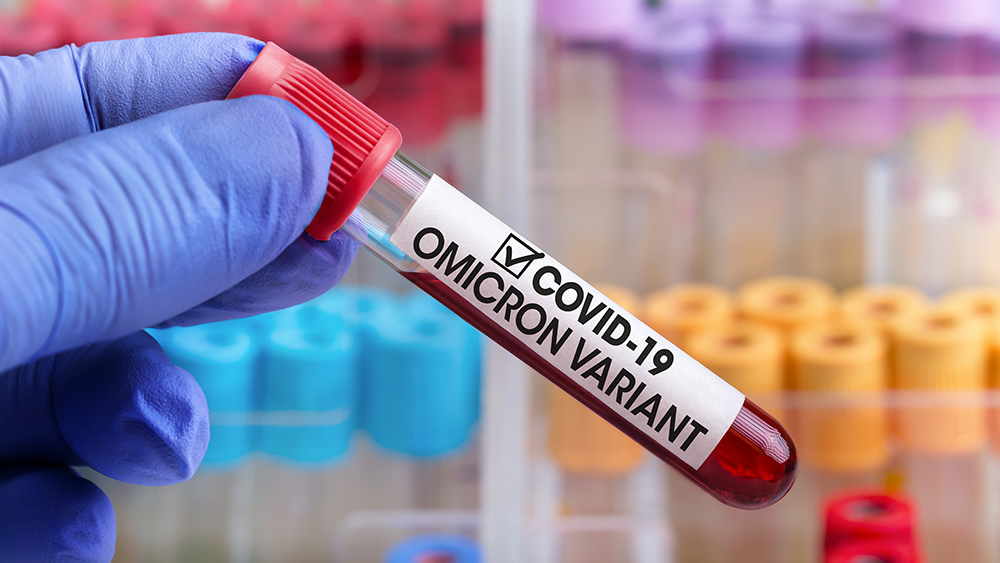Chinese skullcap can kill brain cancer cells, thanks to its active component baicalein
11/25/2021 / By Ralph Flores

Researchers from Qingdao University in China have found that a flavonoid present in Chinese skullcap (Scutellaria baicalensis) has potential anti-cancer properties.
In their report, published in The American Journal of Chinese Medicine, the researchers noted that baicalein, a flavonoid derived from the roots of Chinese skullcap, can induce cell autophagy and apoptosis — two processes that help clear out damaged cells from the body. In particular, the team investigated the mechanism behind the anti-cancer activity of baicalein using human glioma cells.
Exploring the anti-cancer activity of baicalein
A glioma is a tumor that develops in the brain or the spinal cord. This type of tumor originates from the glial cells, which provide support for the neurons. Among the types of glial cells found in the brain and the peripheral nervous system, three types of glial cells can produce tumors.
- Astrocytomas are tumors that develop in astrocytes, star-shaped glial cells found in the brain. Astrocytes are the most abundant type of glial cell in the brain, and they are responsible for many important functions, including forming and maintaining the blood-brain barrier, regulating blood flow and maintaining brain energy metabolism, among others. Astrocytomas may develop in both children and adults at differing severity: Tumors that develop in children are often localized and grow slowly, while those that develop in adults grow rapidly and require immediate treatment.
- Ependymomas are tumors that form from the ependymal cells that line up the ventricles in the brain and spinal cord. These ventricles contain cerebrospinal fluid, which helps protect the brain and spinal cord from injury and infection. Ependymomas can develop at any age; however, these are seen more often in young children. This type of glioma is rare, with only 200 new cases reported each year.
- Oligodendrogliomas are tumors that develop in oligodendrocytes, a type of glial cell that supports and insulates axons in the central nervous system. The most common symptom of oligodendroglioma is seizures: Six out of 10 people with the condition report having a seizure before diagnosis. Men between the ages of 35 and 44 are more likely to develop this type of tumor, but it can occur at any age.
For the study, the team treated glioma cells with baicalein in vitro. In particular, they were interested to see whether baicalein triggers autophagy and induces AMPK activation in glioma cells. The researchers found that baicalein can induce autophagy – that is, the body’s way of cleaning out damaged cells to regenerate healthier cells – in the glioma cells. In addition, treating glioma cells with baicalein also activated the AMPK pathway, one of the most important signaling networks for cell growth. This caused baicalein-induced autophagy and cell death. Researchers say this activation plays a vital role in the anti-cancer effect of baicalein.
“Surprisingly, our research provides new insight with the function of anticancer of [baicalein], and the potential of the promotion in glioma cell apoptosis might be related to autophagy activation,” they wrote in their report. “These results demonstrate the anticancer activity of [baicalein], which can be used as potential therapeutic agents for cancer therapy.” (Related: Cannabis oil saves infant from inoperable brain tumor.)
Other benefits of Chinese skullcap
Despite the foreboding name, the Chinese skullcap is a member of the mint family and has long been used in traditional Chinese medicine. In traditional medicine, the roots of the plant, called huang qin, are used to treat conditions ranging from insomnia, anxiety and tension to inflammation, hepatitis and cardiovascular disease.
In addition to baicalein, research has shown that Chinese skullcap contains other active ingredients that provide health benefits. In a study published in Neuroscience Letters, researchers from China found that oroxylin A – an antioxidant present in the roots of Chinese skullcap – may prevent the development of brain plaques linked to Alzheimer’s disease.
Follow AntiCancer.news for more novel natural treatments for glioma and other cancers.
Sources include:
Tagged Under: alternative medicine, anticancer, baicalein, Chinese medicine, chinese skullcap, herbal medicine, Herbs, natural cures, natural medicine, phytonutrients, research
RECENT NEWS & ARTICLES
COPYRIGHT © 2017 RESEARCH NEWS





















